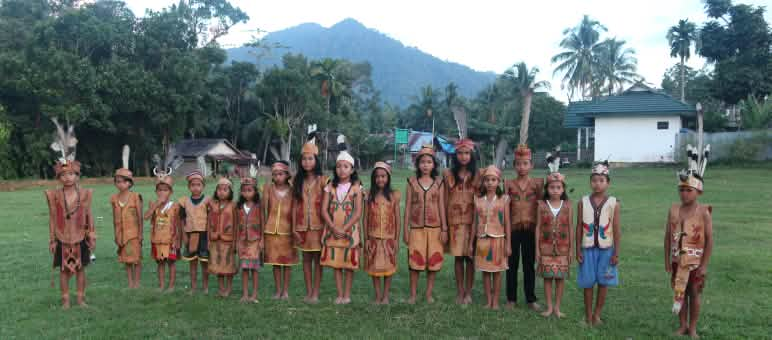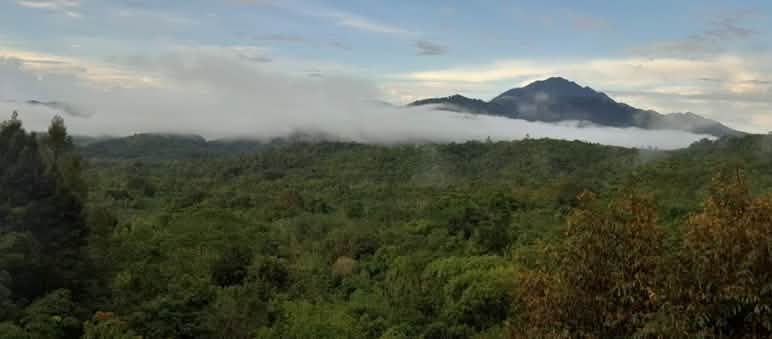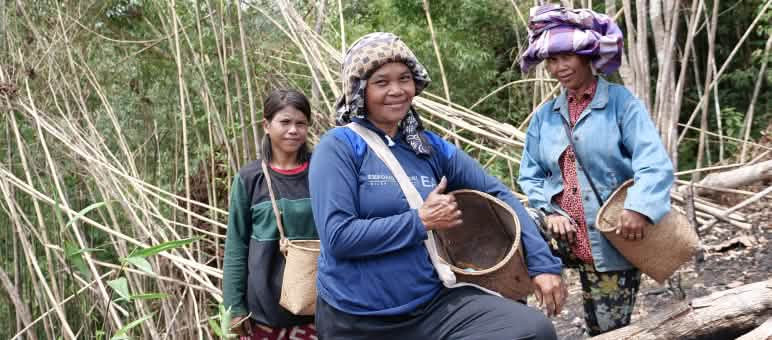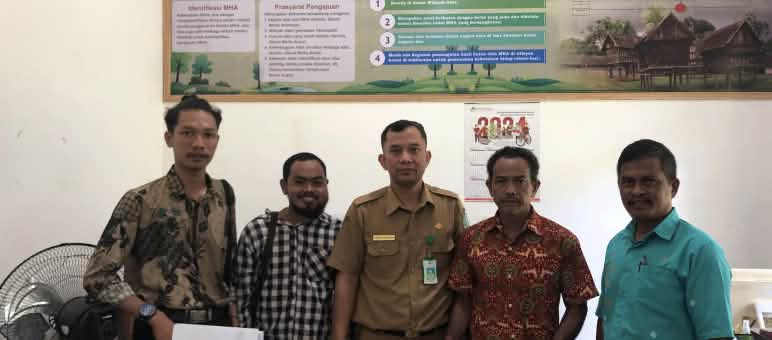Borneo’s Dayak people a big step closer to formal recognition
Indonesia: A success after ten years of struggle for their rights: The Indigenous Dayak Tomun of Kubung village have formally applied for recognition as a community under Indigenous law. Securing the Dayak's forest rights is a crucial move toward keeping the mountain forest of Borneo safe.
“This is a milestone for us in the protection of the rainforest,” says an elated Mr. Tribong, elder of the village of Kubung. On May 13, 2024, he and other village representatives submitted the application for “recognition as a community under Indigenous law” to the Lamandau district. Only recognized communities can apply for forest rights (Hutan Adat).
Kubung is located in a beautiful mountain forest in Borneo. Its inhabitants belong to the Dayak Tomun people. While half of the forest around the better-known village of Kinipan has already been cleared by a palm oil company, Kubung has so far been spared. “Gibbons, pangolins, clouded leopards, Malaysian bears and orangutans live in the forest,” say locals.
But the threats are getting closer: oil palm plantations are creeping in from the south, and a timber plantation wants to expand in the north. It is high time to empower Indigenous peoples stop the deforestation of Borneo. Once Kubung has community and forest rights, the government will no longer be able to issue permits to companies.
We want to protect 12,000 hectares of rainforest!”
-Rk Maladi, Dayak Tomun from Kubung and environmental activist
Kubung shows that Indigenous people are the best guardians of the rainforest. This is why Rainforest Rescue and our partner organizations Save Our Borneo (SOB) and Foundation for People and Forests (YIHUI) support Indigenous communities through our forest rights program as the most appropriate strategy for Indonesia.
Opportunities and legal barriers
Since the Constitutional Court ruled in 2013 that forests do not automatically belong to the state, it theoretically became possible to obtain forest rights. But even after this landmark decision, Indonesia’s Indigenous peoples live in uncertainty. It will take years to set up the necessary administrative structures.
The indigenous alliance AMAN has taken the initiative to create its own Indigenous land registration office, the BRWA. There, 1,452 communities have registered their maps for 28.2 million hectares of forest (as of March 2024). These maps must then be confirmed by the respective provincial government as a precondition for recognition as an Indigenous community and forest rights (Hutan Adat). To date, maps covering 3.9 million hectares have been approved.
Eleven years after the Constitutional Court’s ruling,
0.24 million hectares are “Indigenous Forest” (Hutan Adat),
28.2 million hectares of Indigenous forest are registered with the BRWA, and
3.9 million hectares of mapping have been officially approved.
But the rest of the recognition process is arduous and time-consuming, as the example of Kinipan shows. Mapping is complicated; expert reports on historical settlement and use, clear documentation of community boundaries and numerous other documents are required.
“It’s not easy,” says M Habibi, director of Save Our Borneo. “Since 2014, we have been working together to collect data, make maps and document evidence of traditional use. One problem is always determining the exact boundaries of the community. The Indigenous people need support from the authorities.”
How the recognition of Indigenous peoples will work in practice will only become clear once the districts have adopted their own regulations (PERDA). In Lamandau district, which includes both Kinipan and Kubung, it was not until September 2023 that a “Regulation on Guidelines for the Recognition and Protection of Indigenous Dayak Peoples” was put in place, in part as a result of tireless lobbying by the Dayak Tomun of Kubung and our local partners.
The Dayak Tomun of Kubung are among the pioneers of the Indigenous movement in the archipelago.
“We have been fighting for the recognition of our territorial rights for many years. Thanks to the new regulation, we are one step closer to this goal,” says Rk Maladi, an Indigenous environmental activist from the village.
“We expect our rights to land, forest, nature and culture to be guaranteed as a recognized Indigenous community.”
Syahrul of YIHUI adds: “We have set ourselves the task of ensuring that the forest is actually preserved and used for conservation after recognition. This is the land of the Dayak Tomun, where they have lived for centuries. They are determined to preserve their nature, cultural heritage and traditions.”
************************************************
Here is the press release about this success in the original Indonesian version.
This page is available in the following languages:
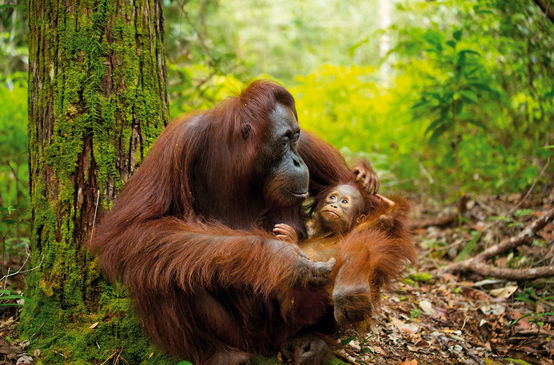
Defending rainforests in Southeast Asia
The forests of Southeast Asia are the last refuge and habitat of orangutans, Sumatran tigers, birds of paradise and Komodo dragons.
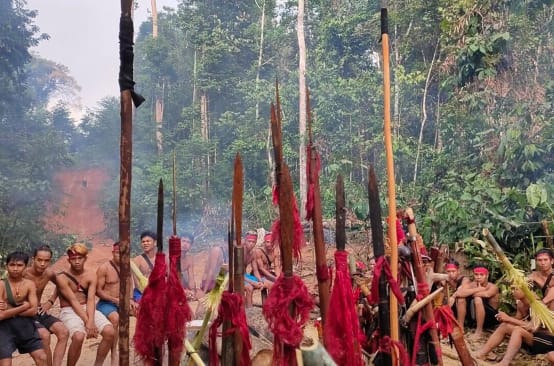
Protecting Borneo’s rainforests and empowering Indigenous people
Kinipan’s fight inspires: Rainforest Rescue and SOB support Indigenous people in Borneo battling deforestation and defending ancient forests.
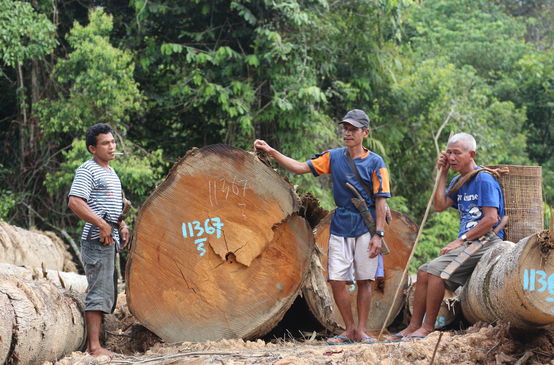
URGENT: Please help us save Kinipan forest!
In Borneo’s Kinipan, the indigenous Dayak Tomun people are struggling to save their forest. SML, the company behind the loggers, wants their land for a palm oil plantation.
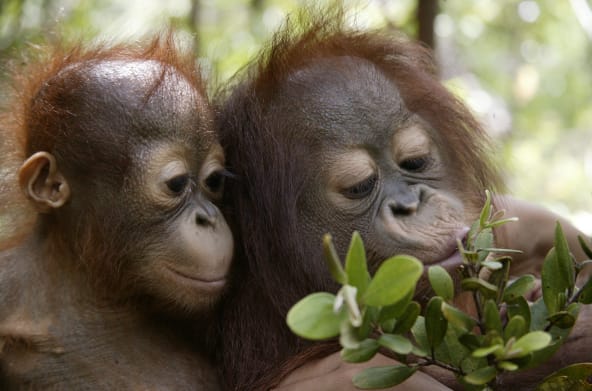
The rainforest
A green sea of ferns, mosses, vines and ancient trees. Iridescent butterflies and colorful birds. Flowers in every hue of the rainbow. The “green lung” is a natural wonder of the world. Find out more about the world’s most diverse, fascinating and threatened ecosystem.
